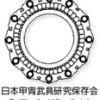-
Posts
509 -
Joined
-
Last visited
-
Days Won
2

Luc T replied to Mark Andrews's topic in Katchu

Luc T replied to Luc T's topic in Sword Shows, Events, Community News and Legislation Issues

